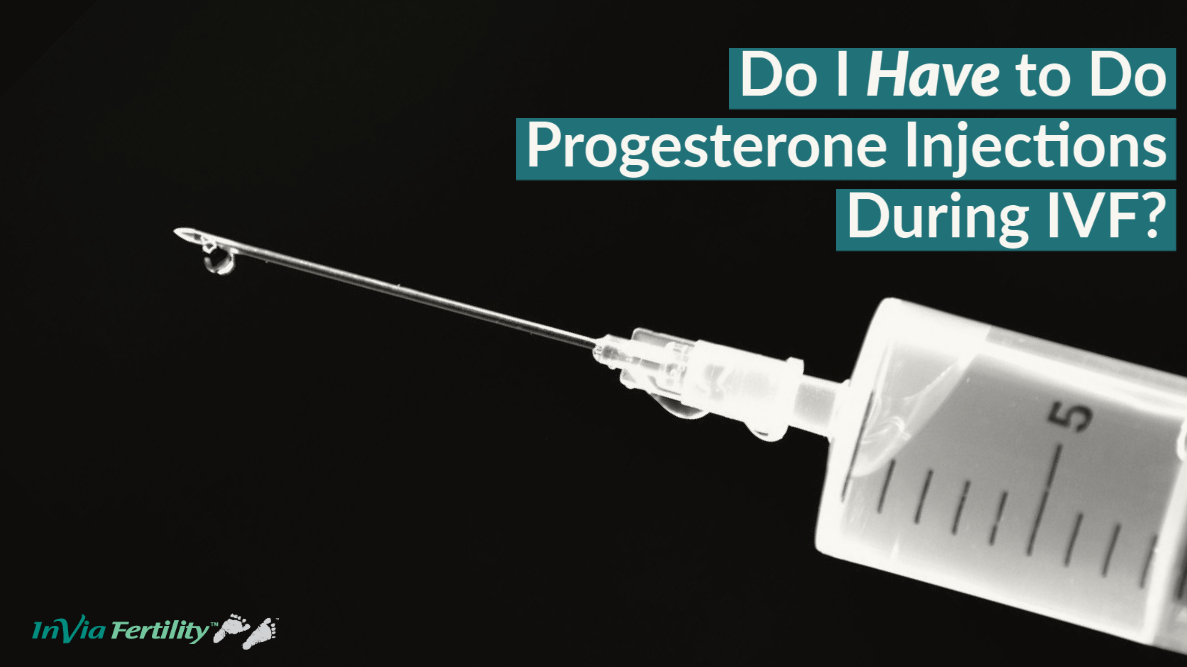We are experiencing a very high volume of calls and messages and ask for your patience. We will answer your portal messages within 48 hours.
We are experiencing a very high volume of calls and messages and ask for your patience. We will answer your portal messages within 48 hours.

Progesterone is an essential hormone needed to support pregnancy. It is produced naturally during both the menstrual cycle and pregnancy. In a normal menstrual cycle, once ovulation occurs, the follicle from which the egg extruded develops into what we call the corpus luteum. This structure produces a number of hormones, including progesterone. Progesterone’s main role is to help the lining of the uterus thicken and become spongy—that is, ready for a fertilized egg to implant and grow.
In programmed frozen embryo transfer (FET) cycles, there is no corpus luteum, which means no progesterone is stimulating the uterine lining to grow. That’s why we give patients progesterone replacement through various routes and protocols.
This support is critical in early pregnancy and is often continued to about 10 weeks’ time, in order to let the placenta develop enough to begin naturally producing its own supply of progesterone. Most studies have shown that progesterone production by the placenta overtakes the corpus luteum by around 6-8 weeks of a natural pregnancy.
Progesterone preparations come in various formulations, including oral tablets, vaginal inserts, and intramuscular injections. Intramuscular and vaginal inserts of progesterone have been well studied and are often used in endometrial preparations for embryo transfers, although there is active debate regarding the best protocol.
A recent study conducted by a multi-center fertility clinic in Maryland compared three different methods of supplementing progesterone after an FET cycle:
The results showed that using only vaginal progesterone is inferior to intramuscular progesterone and a combination of vaginal and intramuscular in maintaining a pregnancy during an FET cycle. The evidence from this study also showed that the other two methods—either injections of progesterone, or the combination of inserts and injections—were equally effective in maintaining pregnancy.
This is excellent news for patients, because it allows physicians to provide more safe and effective options for progesterone replacement.
It may not surprise you to hear that the majority of patients who had prior experience with any type of progesterone replacement treatment preferred vaginal progesterone in the study.
Common concerns reported by patients with intramuscular progesterone include:
Common complaints with vaginal inserts included vaginal irritation and itching. However, most patients in the study reported reduced or no pain and irritation from inserts, and satisfaction with the convenience of administering them.
The combination protocol that uses both shots and inserts means that patients only need to take a progesterone injection every third day. This reduces the total number of injections for a typical FET cycle from approximately 60 to 20 injections.
Although this does not completely eliminate the need for injection, it is a significant decrease. We hope further study in this area will help identify new pathways for progesterone replacement that don’t involve needles at all!
If you're trying to build your family and you'd like to consult with board-certified physicians in the Chicago area, we here at InVia Fertility Specialists are ready to serve you. Click the link below to make an appointment at one of our four locations today!

Entire Website © 2003 - 2020
Karande and Associates d/b/a InVia
Fertility Specialists
